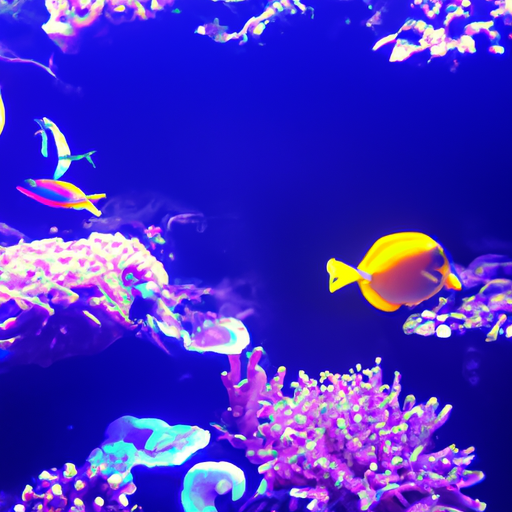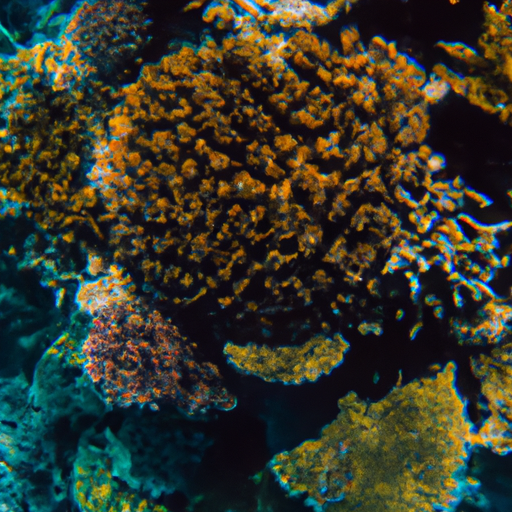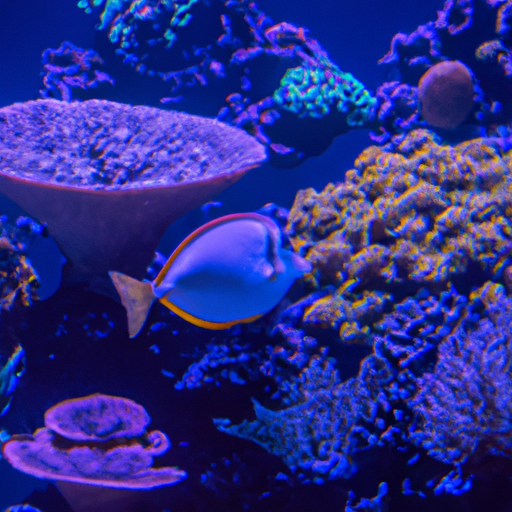
The Fragile Ecosystems: Understanding the Importance of Protecting Marine Life
Marine life plays a crucial role in our planet’s delicate ecosystem. The oceans are not only home to an incredible diversity of species, but they also provide vital resources and support various industries. However, human activities such as pollution, overfishing, and climate change have placed marine life in great danger. Understanding the importance of protecting marine life is crucial for the future of our oceans and the well-being of our planet.
Conservation efforts are essential in ensuring the survival of marine life. One of the main objectives of these efforts is to preserve and restore the fragile ecosystems that marine species depend on. This involves establishing protected areas such as marine reserves and marine parks, where fishing and other harmful activities are restricted or prohibited. These protected areas serve as safe havens for marine species to reproduce, feed, and thrive, ultimately contributing to the overall health of the ocean ecosystem.
An important aspect of protecting marine life is the promotion of sustainable fishing practices. Overfishing has led to a decline in fish populations worldwide, jeopardizing not only the survival of these species but also the livelihoods of communities dependent on fishing. Implementing measures such as fishing quotas, size limits, and gear restrictions can help prevent further depletion of fish stocks and allow fish populations to recover.
Addressing pollution is another crucial part of protecting marine life. Chemical pollutants, plastics, and oil spills have devastating effects on marine ecosystems, leading to the death of marine species and the destruction of habitats. Proper waste management, increased recycling efforts, and stricter regulations on the discharge of pollutants into the ocean are necessary to reduce the negative impacts of pollution on marine life.
Climate change poses a significant threat to marine life. Rising temperatures, ocean acidification, and sea-level rise have detrimental effects on coral reefs, marine mammals, and other species. Reducing greenhouse gas emissions and promoting sustainable energy sources are vital in mitigating the impacts of climate change on marine ecosystems.
Protecting marine life is not only essential for the oceans’ well-being but also for our own. The health and abundance of marine species are interconnected with the health of our planet. By safeguarding marine life, we are ensuring the sustainability of resources, the preservation of biodiversity, and the maintenance of a balanced ecosystem.
In conclusion, the importance of protecting marine life cannot be overstated. Conservation efforts, sustainable fishing practices, pollution reduction, and addressing climate change are among the key actions needed to ensure the survival and well-being of marine species. By understanding and prioritizing the protection of marine life, we are taking significant steps towards securing the future of our oceans and the sustainability of our planet.
Conservation Initiatives: Strategies for Preserving the Diversity and Health of Our Oceans
The Importance of Protecting Marine Life: Conservation Efforts and the Future of Our Oceans
As our world faces growing environmental challenges, the need to protect our oceans and marine life has become more critical than ever. Our oceans cover more than two-thirds of the Earth’s surface, provide us with essential resources, and support millions of species. However, human activities such as overfishing, pollution, and climate change pose significant threats to marine ecosystems.
Conservation initiatives play a vital role in safeguarding the diversity and health of our oceans. These efforts range from creating marine protected areas to promoting sustainable fishing practices and reducing pollution. By adopting these strategies, we can ensure the long-term survival of marine species and maintain the overall balance of marine ecosystems.
One of the key reasons we must protect marine life is its immense biodiversity. Our oceans are home to an array of species, many of which are still undiscovered. Preserving this biodiversity is crucial for various reasons. Marine organisms contribute to the overall health of the oceans by regulating nutrient cycles, maintaining water quality, and supporting coral reef ecosystems. Additionally, many marine species play important roles in medical research, providing potential sources for new treatments and therapies.
Furthermore, marine life is intricately interconnected, with species relying on each other for survival. Disruptions to one species can have cascading effects throughout the entire ecosystem. For example, the decline of apex predators like sharks can lead to an increase in the population of their prey, causing imbalances in the food chain. By protecting marine life, we can help maintain these delicate relationships and promote ecosystem stability.
In order to ensure the future of our oceans, conservation efforts must also address the impacts of climate change. Rising sea temperatures, ocean acidification, and sea-level rise present significant challenges to marine ecosystems. Conservation initiatives should focus on reducing carbon emissions, promoting renewable energy sources, and implementing adaptation strategies to mitigate these effects.
Education and awareness also play a crucial role in protecting marine life. By educating individuals about the importance of conservation and the impacts of their actions, we can inspire positive change. Encouraging responsible tourism, fostering sustainable seafood choices, and advocating for policy changes are all essential steps in preserving our oceans.
In conclusion, protecting marine life is of utmost importance for the future of our oceans. By implementing effective conservation initiatives, we can safeguard marine biodiversity, maintain ecosystem balance, and mitigate the impacts of climate change. Each individual has a role to play, and by collectively working towards a sustainable future, we can ensure the wellbeing of our oceans for generations to come.
Threats to Marine Life: Human Activities and Environmental Factors
The oceans are a vast and important ecosystem that is home to a rich diversity of marine life. However, this delicate balance is under threat due to various human activities and environmental factors. It is crucial that we recognize the importance of protecting marine life and take action to ensure its survival for future generations.
Conservation efforts play a vital role in safeguarding marine life. One of the main strategies is the establishment of marine protected areas (MPAs), which are designated zones where human activities are restricted or regulated. These areas serve as havens for marine species, allowing them to reproduce and thrive. MPAs also help to preserve important habitats such as coral reefs and seagrass beds, which provide food and shelter for numerous marine organisms.
In addition to MPAs, efforts are being made to promote sustainable fisheries practices. Overfishing is one of the major threats to marine life, as it disrupts the natural food chain and can lead to the collapse of fish populations. Implementing measures such as fishing quotas, size limits, and mesh size regulations can help to maintain healthy fish populations and preserve marine biodiversity.
Pollution is another significant threat to marine life. Chemical contaminants, marine debris, and oil spills all have detrimental effects on marine ecosystems. To combat pollution, stricter regulations on waste disposal and industrial practices are necessary. Furthermore, promoting the use of renewable energy sources and reducing our reliance on fossil fuels can help to minimize the risk of oil spills and other forms of pollution.
Climate change poses a long-term threat to marine life. Rising ocean temperatures, ocean acidification, and sea-level rise all have severe impacts on marine ecosystems. Coral bleaching, for example, is a consequence of warmer waters and can lead to the death of coral reefs, which are crucial habitats for many marine species. By reducing greenhouse gas emissions and adopting sustainable practices, we can mitigate the impacts of climate change and protect marine life.
Protecting marine life is not only essential for the survival of countless species but also for the well-being of humanity. The oceans provide valuable resources, including food, medicine, and even oxygen. They also play a critical role in regulating the Earth’s climate. If we fail to take action and continue to neglect the health of our oceans, we risk losing not only this incredible ecosystem but also compromising our own future.
In conclusion, the threats to marine life are diverse and significant. However, through conservation efforts and sustainable practices, we have the power to make a difference. By protecting marine life today, we are safeguarding the future of our oceans and ensuring a healthy planet for generations to come.
The Future of Our Oceans: How Conservation Efforts Can Ensure a Sustainable World
Marine life plays a crucial role in the health and sustainability of our oceans. From providing food and livelihoods to regulating climate and supporting biodiversity, the importance of protecting marine life cannot be overstated. However, human activities such as overfishing, pollution, and habitat destruction pose significant threats to the delicate balance of marine ecosystems.
Conservation efforts are essential to ensure the future of our oceans and the species that call them home. By implementing and supporting measures to protect marine life, we can not only safeguard the health of our oceans but also secure a sustainable world for future generations.
One of the key aspects of protecting marine life is establishing marine protected areas (MPAs). These areas serve as sanctuaries for a wide range of species, allowing them to thrive and reproduce without disturbance. MPAs also help in preserving important habitats such as coral reefs, seagrass beds, and mangrove forests, which are crucial for the survival of many marine species.
In addition to the establishment of MPAs, sustainable fishing practices are essential for the conservation of marine life. Overfishing not only depletes fish populations but also disrupts the delicate balance of marine ecosystems. Implementing measures such as setting catch limits, promoting selective fishing, and reducing bycatch can help ensure the long-term sustainability of marine resources.
Efforts to reduce pollution, particularly from plastic waste, are also crucial in protecting marine life. Plastics pose a significant threat to marine species through entanglement, ingestion, and the release of toxic chemicals. By promoting recycling, reducing single-use plastics, and implementing proper waste management systems, we can minimize the impact of plastic pollution on marine ecosystems.
Climate change is another pressing issue that threatens marine life. Rising sea temperatures, ocean acidification, and altered precipitation patterns have significant impacts on marine species. Conservation efforts must include measures to mitigate and adapt to climate change, such as reducing greenhouse gas emissions and promoting the conservation and restoration of marine habitats that act as carbon sinks.
Overall, protecting marine life is essential for the future of our oceans and the well-being of our planet. Conservation efforts focused on establishing marine protected areas, implementing sustainable fishing practices, reducing pollution, and addressing climate change are paramount. By prioritizing the preservation of marine life, we can ensure a sustainable world for future generations and safeguard the incredible biodiversity that thrives beneath the ocean’s surface.


